All in all it is a contented life, and I want no more adventure in it. I would have been happy to have lived out my remaining time as a good husband to my wife, a decent father to my children, and a safety-conscious driver for my passengers, with what happened at the Hotel Mille Collines only a private memory, a forgotten episode in history. I went through hell and lived to tell the story, but I never expected to tell the story to you quite like this. The way it happened is a brief footnote.
One day in 1999 the telephone rang. On the line was a young man from New York named Keir Pearson who said he was researching a screenplay on the Rwandan genocide. A friend of his had been traveling in Africa at the time and had heard the dramatic radio interview given by my friend Thomas Kamilindi. The young man from New York had borrowed money from his girlfriend to buy an air ticket to Rwanda and wanted to talk to me. I said, sure, come for a visit on your stopover to Kigali. The story of the Mille Collines was already well known. It had been told on the BBC and the Voice of America and other radio programs. But nobody had put it on film.
I spent an hour with Keir Pearson in my town house and was impressed with his sincerity, as well as with his desire to get the story correct. His business partner was an Irish film director named Terry George and together they made the movie Hotel Rwanda about my experience. There were a few dramatic embellishments, but I know that’s typical for Hollywood movies, and the story was very close to the truth. The movie earned Academy Award nominations for Pearson and George as well as for the two main actors, Sophie Okonedo and Don Cheadle, whom I later befriended. I was happy he was chosen, for he is a fine actor and much better looking than I.
It was very strange for me to be called a “hero” the way that I was when the movie was released in Europe and America. I was invited to the White House to meet President George W. Bush, who told me he saw the movie twice. I started giving lectures about the current state of affairs in Africa today and the importance of truth and reconciliation in the aftermath of genocide. With the help of some friends I started the Hotel Rwanda Rusesabagina Foundation to provide education and health care to the thousands of orphans and homeless children who live in Rwanda today. Nearly half a million children were left parentless by the murders. The others, the younger ones, are what are known as enfants du mauvais souvenir, or “children of bad memories.” They are the ones whose mothers were raped, impregnated and left to survive. Quite a few are HIV-positive from birth. Most of them never knew a mother’s unconditional love because of the terrible way in which they came into the world. My foundation is dedicated to funding orphanages and medical treatment and to providing education for these lost children so that they may know some hope and not become a part of a future surge of evil in Rwanda. We cannot change the past, but we can improve the future with the limited tools and words that we have been given.
Words are the most powerful tools of all, and especially the words that we pass to those who come after us. I will never forget that favorite saying of my father’s: “Whoever does not talk to his father never knows what his grandfather said.” So I decided to write this book for the sake of the historic record.
I am a Rwandan, after all, and I know that all things pass away but history. History never dies. It is what defines us as a civilization, and we live out our collective histories every day, in ways both good and evil. Over and over people kept telling me that what I did at the Mille Collines was heroic, but I never saw it that way, and I still don’t. I was providing shelter. I was a hotel manager doing his job. That is the best thing anyone can say about me, and all I ever wanted. And that’s really the best I have to give.
IN A VILLAGE SOUTH OF KIGALI is a church that is no longer a church. The compound is surrounded with a low stone wall and the ground is covered with weeds. The building itself is shaped like an auditorium; the walls are of red brick. The floor is poured concrete. The stained-glass windows are cracked and broken. Spatters of grenade fragments are in the walls and the tin ceiling is shot though with hundreds of bullet holes. On sunny days you can see shafts of thin light streaming through, and the spots they make on the floor look like a constellation of stars.
This is the former parish church in the community of Nyamata. The name means “place of milk.” The church had been renowned as a safe haven during Rwanda ’s past troubles. When the killings started in the spring of 1994 the Tutsis of the region were encouraged to hide in the sanctuary. The refugees locked the iron gates and prayed while their friends and neighbors eagerly struggled to break inside to murder them. On April 14 the Presidential Guard was called in from Kigali and they threw grenades at the gates, blasting them into shards. The ordinary people and the soldiers flooded in and thousands of people were massacred.
The building has since been seized from the Vatican. It is now an official memorial to the genocide, but it functions also as a crypt. There are burlap bags full of skulls in a side room. Some of them bear a slice where a machete chopped into the brain. Out in the backyard is an open tomb with thousands of skeletons, with the skulls arranged in neat rows, the bones stacked up on wooden shelves. Most of them were found in the sanctuary, where the bodies were stacked three deep, but others were recovered from mass graves and pit toilets around the village. The altar is covered with a bloodstained cloth. The back wall has stains on the bricks left by the children whose heads were smashed against it. Quietness reigns.
Standing out front is a sign draped with a purple cloth. It bears a pledge in four languages: “Never Again.”
We all know these words. But we never seem to hear them.
What happened? Hitler’s Final Solution was supposed to have been the last expression of this monstrous idea-the final time the world would tolerate a deliberate attempt to exterminate an entire race. But genocide remains the most pressing human rights question of the twenty-first century.
Each outbreak has its differences on the surface. In Cambodia slaughter was done in the name of absurd political dogma; in Bosnia the killings erupted after the fragmenting of a multiethnic federation; the Kurds in Iraq were gassed when they demanded independence from a dictator; and today in Sudan innocent people are dying because they occupy oil-rich territory coveted by the ethnic majority.
Rwanda had its own unique set of circumstances. We had a radio station that broadcast vicious racial humor-“jokes” that sounded more and more like commands with each telling. We had bad leadership concerned more for its own survival than the needs of the people. We had a long history of grabbing impunity, in which people were allowed to get away with the most flagrant property crimes and job discriminations so long as they were committed against Tutsis. We had a history of tit-for-tat massacres in the countryside that were never investigated. And we had a hungry and desperate population that was taught to see the midnight murder of their neighbors as a potential economic windfall.
Look closely at each of the world’s recent genocides, however, and the surface differences burn away. The core of genocide is always the same. They erupt under the cover of a war. They are the brainchildren of insecure leaders eager for more power. Governments ease their people into them gradually. Other nations must be persuaded to look away. And all genocides rely heavily on the power of group thinking to embolden the everyday killers.
Читать дальше
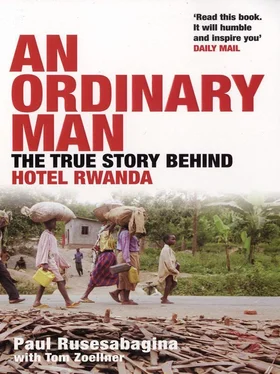

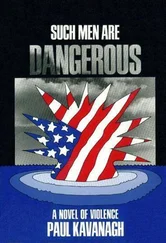
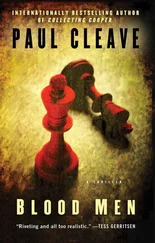
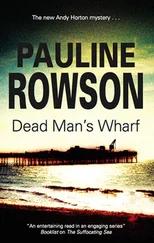

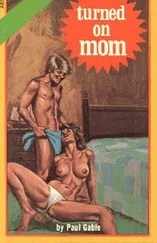

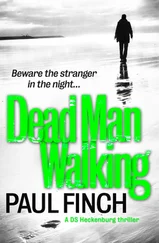


![Paul Finch - A Wanted Man [A PC Heckenburg Short Story]](/books/702381/paul-finch-a-wanted-man-a-pc-heckenburg-short-sto-thumb.webp)
